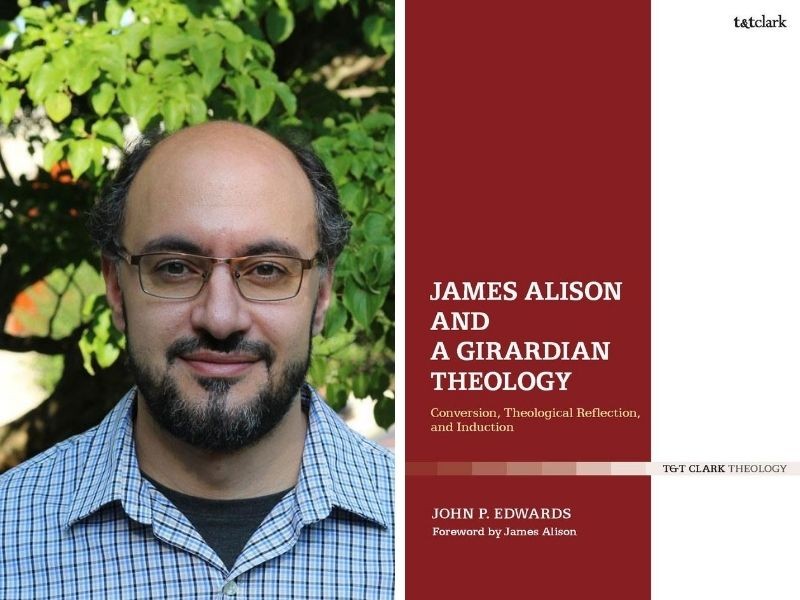Villanova Theology Professor’s New Book Illuminates the Power of Mimetic Theory

VILLANOVA, Pa. – Often present in discussions regarding human behavior, mimetic theory uses anthropological, sociological and neurological evidence to demonstrate the extent to which human behavior is shaped by imitation. Conceptualized by social theorist René Girard, mimetic theory illuminates the mechanism of scapegoating within human history and helps us to understand the violence depicted in the bible, particularly at the cross.
In his new book, James Alison and a Girardian Theology: Conversion, Theological Reflection, and Induction (T&T Clark, 2020), John P. Edwards ’02 CLAS, ’06 MA, PhD, director of the Center for Pastoral Ministry Education and affiliate faculty member in the Department of Theology and Religious Studies in the College of Liberal Arts and Sciences, uses mimetic theory to understand the process of conversion, the nature of theological reflection, and the inherent nonviolence of Christian faith.
James Alison, PhD, is a Catholic theologian, priest and author known for first making Girard’s work accessible to the wider public. Dr. Edwards extrapolates on Father Alison’s work and demonstrates the reciprocal relationship between conversion and theological reflection. By doing so, he makes more visible the inherently nonviolent character of the God that Jesus called ‘Father’ and of authentic Christian faith.
“John P. Edwards has written a superb treatment of James Alison's and René Girard's contributions to the terrain of fundamental theology” says reviewer Julia Robinson Moore, PhD, associate professor of Theology, University of North Carolina-Charlotte. “His analysis is brilliant, thought-provoking, and a must-read for proficients and novices who seek to understand the intricate connections between mimetic theory and Christian theology.”
Dr. Edwards’ book is the first monograph on Alison’s work and it includes a foreword by Alison. He directs Campus Ministry’s graduate residential ministry program and his areas of teaching and research include the theology of ministry, practical and contextual theologies, theology and mimetic theory, and theological anthropology. He is a board member of Theology & Peace. Dr. Edwards received his bachelors and masters from Villanova University and his doctorate from Boston College.
About Villanova University’s College of Liberal Arts and Sciences: Since its founding in 1842, Villanova University’s College of Liberal Arts and Sciences has cultivated knowledge, understanding and intellectual courage for a purposeful life in a challenging and changing world. With more than 40 majors across the humanities, social sciences and natural sciences, it is the oldest and largest of Villanova’s colleges, serving more than 4,500 undergraduate and graduate students each year. The College is committed to a teacher-scholar model, offering outstanding undergraduate and graduate research opportunities and a rigorous core curriculum that prepares students to become critical thinkers, strong communicators and ethical leaders with a truly global perspective.
